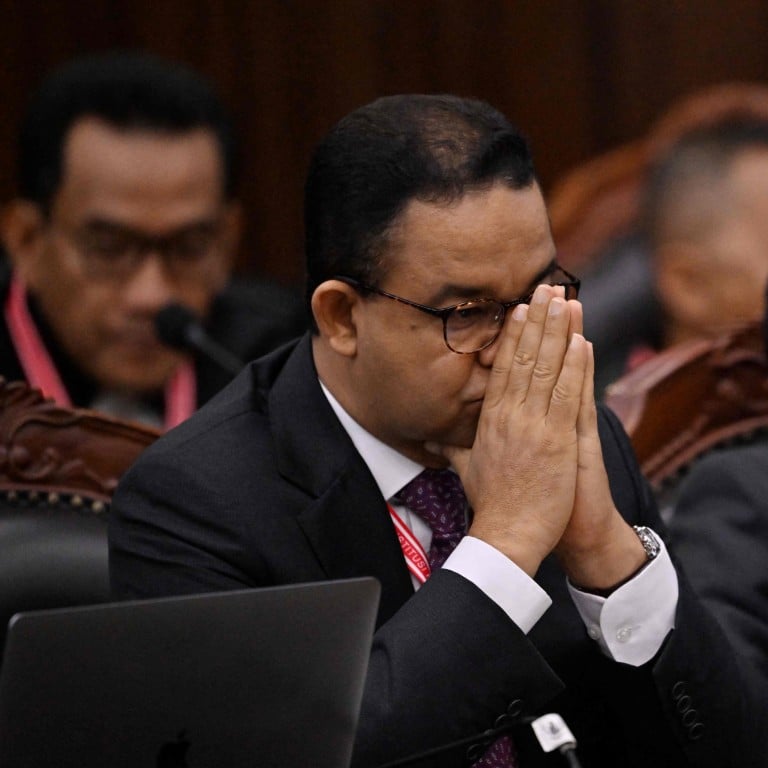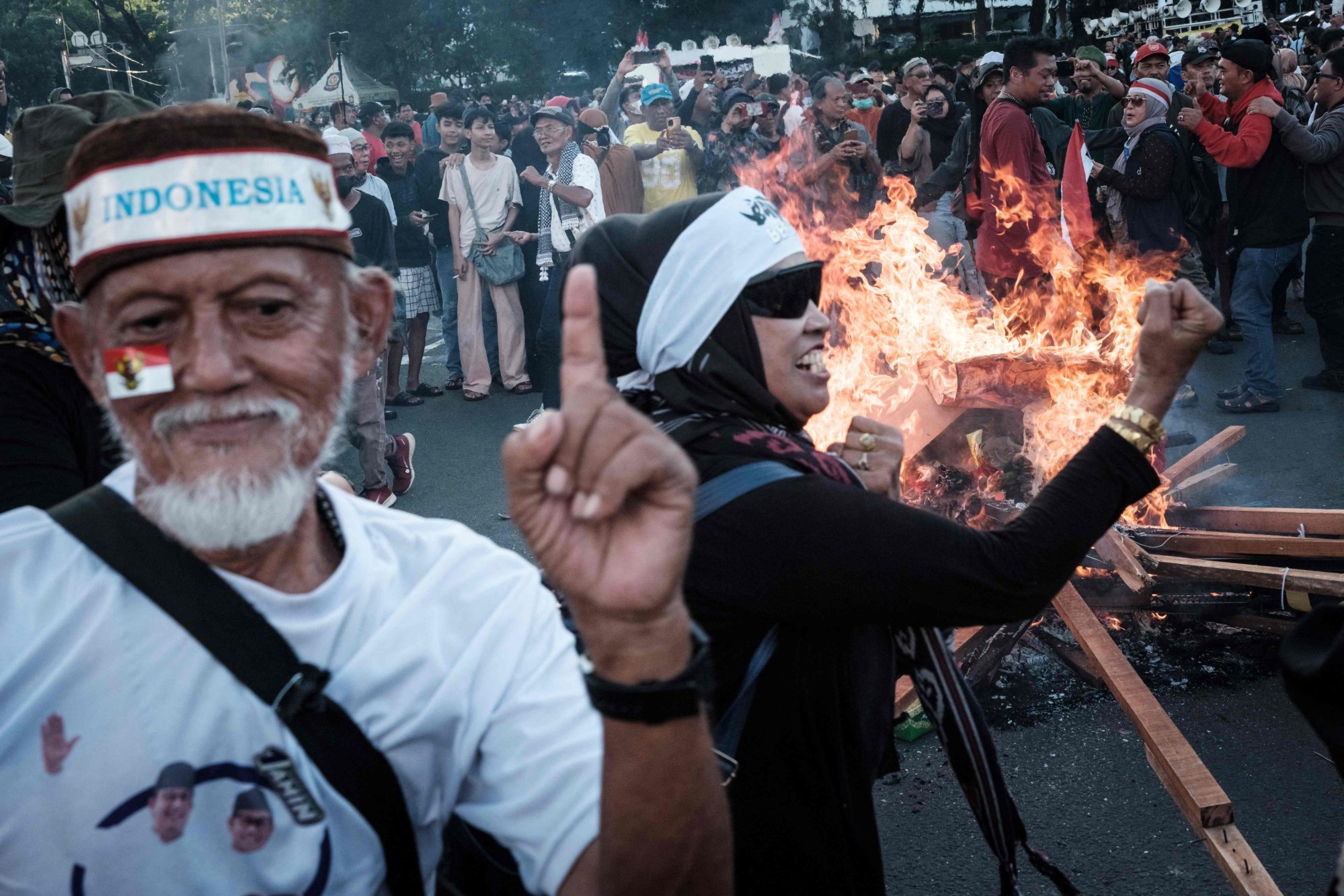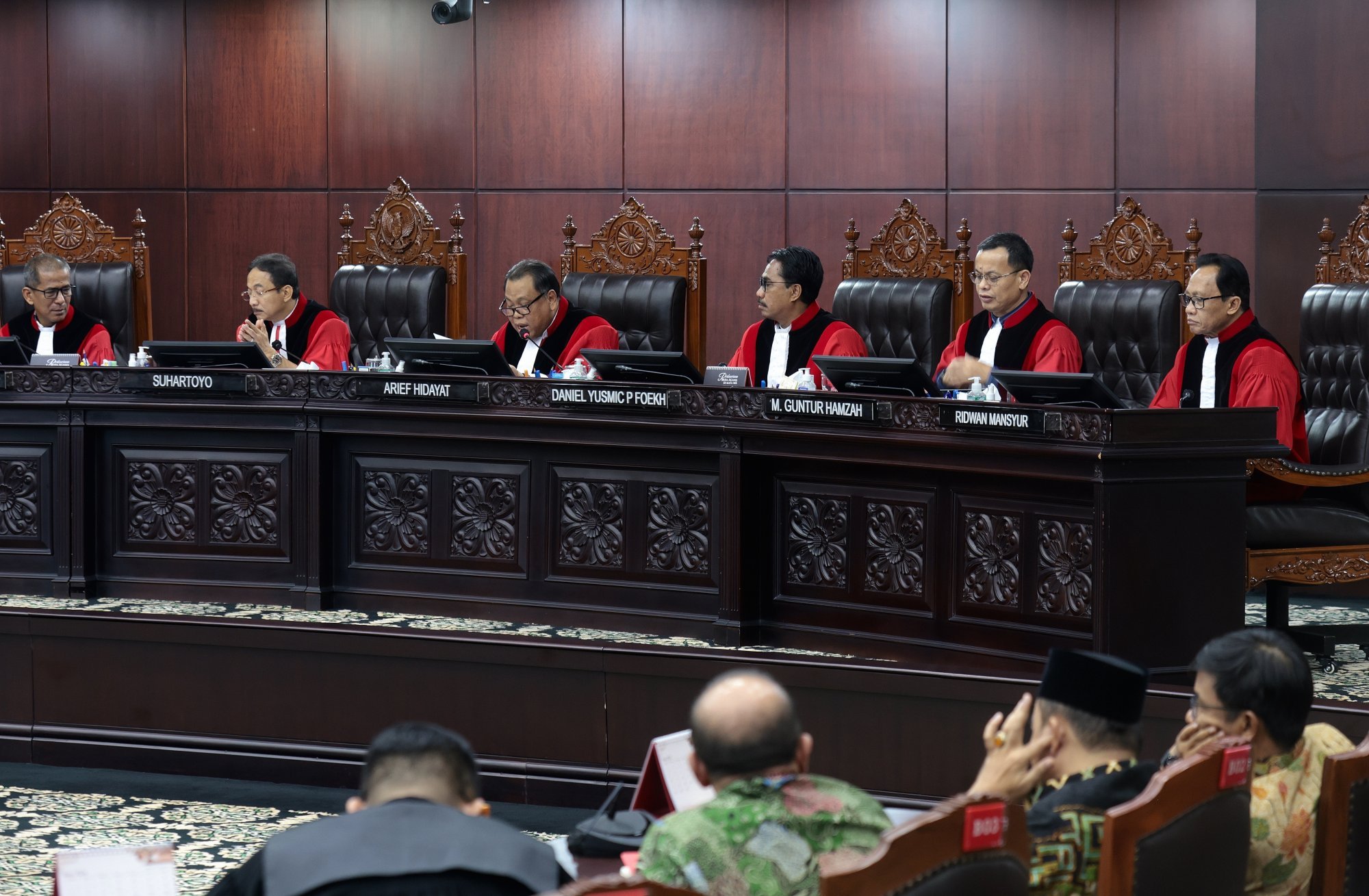
Indonesia’s top court upholds Prabowo’s presidential win, dismissing fraud allegations from rivals
- Accusations of widespread fraud and state interference rejected by Constitutional Court in 5-3 decision
- Losing candidates Anies Baswedan and Ganjar Pranowo say they will respect the court’s ruling
Prabowo, 72, won the election by a substantial margin of votes, but his rivals – former governors Anies Baswedan and Ganjar Pranowo – had sought his disqualification and a revote through the Constitutional Court.
Five of the judges ruled in favour of rejecting their petitions, while three gave dissenting opinions. Chief Justice Suhartoyo said in his final statement that there was “no legal basis” to suggest there had been any systematic fraud or that state intervention had been used to sway voters.

However, analysts said that Monday’s court ruling would finally confirm and cement Defence Minister Prabowo’s electoral victory.
Otto Hasibuan, a lawyer for Prabowo, said the ruling represented “a victory for all Indonesians”, and reaffirmed that the former military leader was looking forward to taking office in October.
Representatives of both former candidates said they would respect the court’s decision.
“The decision of the court upheld the status quo, which is not surprising,” said Ian Wilson, a senior fellow at the Indo-Pacific Research Centre at Murdoch University in Perth.
The result of the court’s ruling shows how Widodo’s government was able to “manoeuvre within the very big legal loopholes that exist, and do exactly what they have been accused of, but in a way that the court was not able to ascertain was a breach of their regulations”, he added.
Anies and Ganjar, who received around 25 per cent and 16 per cent of the vote, respectively, also claimed that Widodo had used his influence to support Prabowo’s campaign by mobilising regional officials and social aid programmes.
Some cry foul play as Indonesia’s Prabowo is set to be named president
This included the distribution of money and basic food items such as rice and oil to sway voters towards Prabowo, who won the election with 58 per cent of the vote.
Prabowo and Widodo’s administration have repeatedly rejected the allegations.
The rival camps also alleged that rules had been unfairly changed in October to allow Widodo’s son, Gibran Rakabuming Raka, to become Prabowo’s running mate.
Despite acknowledging the ethical violation, the court on Monday ruled that it did not find any evidence of nepotism behind the ruling that allowed Gibran to run.
The challenge for the court in accepting there might have been an issue was that it would have to “reverse and contradict [its] own previous decision”, said Wasisto Raharjo Jati, a political analyst with the Jakarta-based National Research and Innovation Agency.
“So this ruling is almost like a repetition of what happened in October.”

Dissenting opinions
Analysts said the results of the ruling were largely predictable, the dissenting opinions from three of eight judges on the panel were an “interesting development”.
One of the dissenting votes came from Judge Arief Hidayat, who argued that the president and state agencies had lacked neutrality during the electoral process.
“It was interesting to see the court questioning the president’s position, something we would perhaps not expect to see in the days that his brother-in-law, Anwar Usman, was leading the court,” Wasisto said.
According to Titi Anggraini, a legal expert from the University of Indonesia, the dissenting opinions have weakened the “legitimacy” of the results, and will “always leave a sense of controversy in society.”
“The three judges who offered a dissenting opinion are a reminder of the problems in this election and raises concerns about the future of upholding an election that is just, free, honest, fair, equal, and democratic as required by the country’s constitution dating back to 1945.”
Analysts say that this court ruling will also inform how Indonesia’s local and regional elections will play out in the future. While there may be more awareness among the courts about how state resources could be used to sway voters, it might also be hard to scrutinise the use of such tactics at a more local level.
“They may not have breached the regulations but, as the dissenting opinions pointed out, things were not done in the spirit of honesty and openness, and that’s what I consider the disaster of this election,” Wilson said.
Nostalgia for Suharto era triggers warnings about Indonesia’s dark history
“It’s almost certain that we’ll see the same [methods] being used again and again, and that’s bad for democracy in Indonesia,” he said.
As the Constitutional Court’s decisions are final and binding, there are no remaining avenues for Prabowo’s two rival candidates to challenge the result of the election. But the fact that the ruling was not unanimous might offer some vindication to their camps and their supporters.
“What [the rival camps] do moving forward politically is not clear at this point in time, but they will take that as a moral victory even though the status quo has been upheld,” Wilson said.

